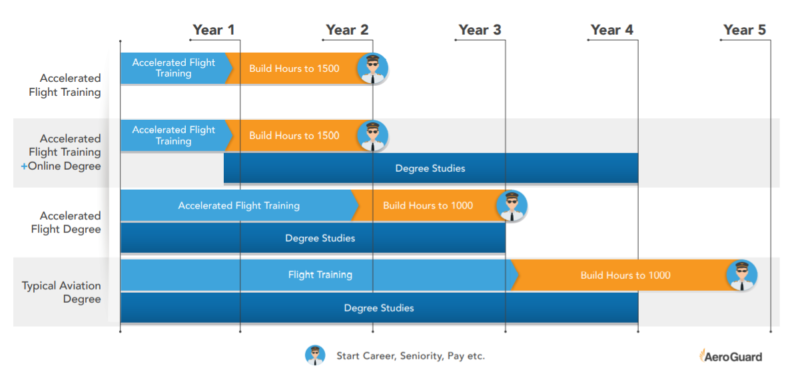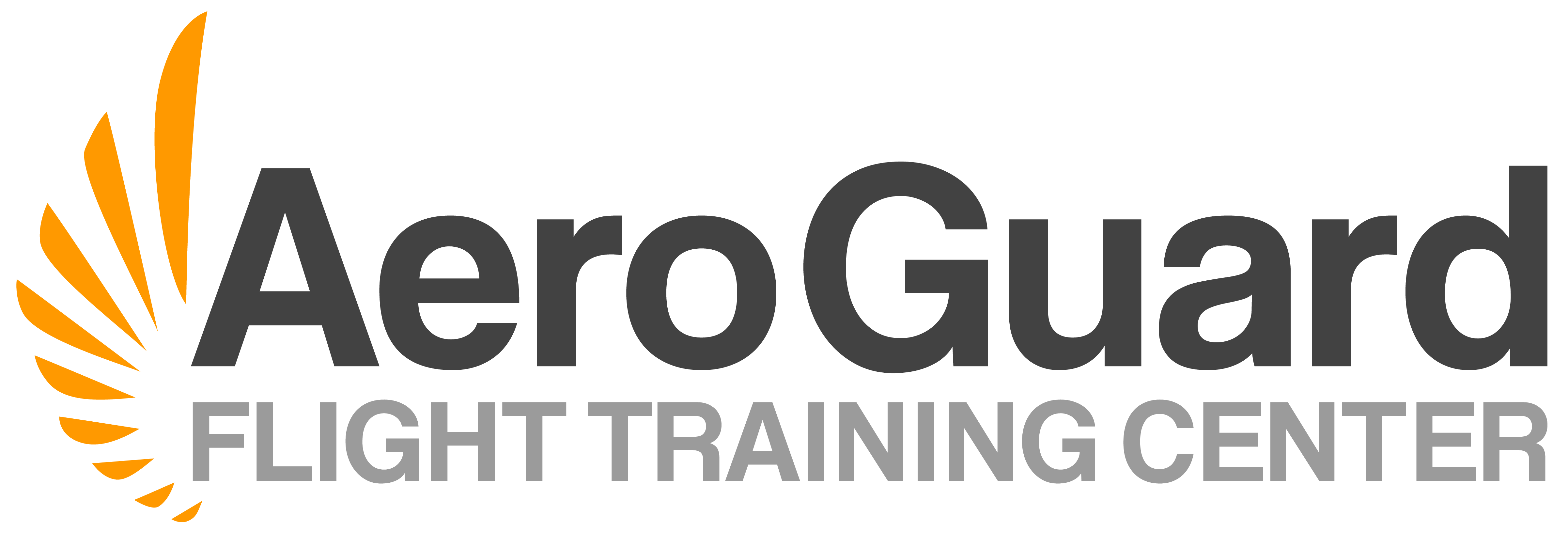Do You Need a Degree to Become a Pilot?
One of the most common questions we hear from students is whether or not you need a degree to become a pilot. As with most things, the answer to that is “it depend”. There are some instances where the answer would be yes and there are some instances where the answer is actually no. The question that students should be asking is whether or not you should get a college degree on your journey to becoming a pilot. Allow us to explain.
Do You Need a Degree to Become a Commercial Pilot?
Those who are interested in beginning flight school in order to become a commercial pilot do not need a college degree to get started. In fact, some flight training can be done as early as 16 years old (although students must be 18 years old on the day of their commercial checkride) and many continue their training straight out of high school. However, keep in mind, the difference of commercial pilot vs airline pilot. Becoming a commercial pilot does not equate to working for a major airline or a large private jet company, rather it simply means you have met the necessary requirements from the FAA, passed your checkride and have received your commercial certificate. In this aspect, you are not required to have a college degree in order to earn your certification that makes you available for hire. Most entry-level pilot jobs do not require a degree either, only the necessary flight certificates.
Do You Need a Degree to Become an Airline Pilot?
This is where things start to fall into that grey area. For the last few years, regional airlines have been suffering from a major pilot shortage which is expected to continue through at least 2039. Due to this high demand for pilots, Regional Airlines typically do not have a college degree requirement. Rather the requirements to become a pilot at a Regional Airline are meeting ATP minimums, having an upstanding record with the FAA, and that applicants are able to impress their future employers in the interview as a team player, someone with extra curriculars, a track record of dependability and professionalism, and of course someone who is a pleasure to work with!
While the regional airlines don’t currently require a degree, that doesn’t mean it can’t change. Additionally, that’s not necessarily true for the major carriers. That’s when the question “should you get a degree?” comes into play. If working for a major is your goal, then the answer is yes! On a major airline application, you may see some that say “degree preferred” instead of “degree required”. Even though you see “degree preferred”, you really should have a degree when you apply. Working for the major airlines is extremely competitive and with consistently receiving thousands of applicants, the easiest way for them to narrow down the selection is by education status.
Even though you should get a bachelor’s degree in order to increase your chances of getting hired at a major airline, you don’t need an aviation degree. Many think that an aviation degree is required but that’s not true. The degree is simply another tool that shows airline recruiters that you are not only committed and disciplined, but you have a desire to grow professionally. They aren’t necessarily concerned with what you chose as your major. When deciding on a major, consider what you are most passionate about or what type of career you would like to have if for whatever reason, medical or otherwise, you were no longer able to be a pilot. You want to have something you can fall back on. If that is still in the field of aviation, then by all means, complete your aviation degree but don’t feel that it’s a requirement. The question then becomes, when and how should you get your degree.
When and How to Complete Your Bachelor’s Degree
If you’re looking for a career with a major airline eventually down the line, the question no longer becomes “do you need a degree to become a pilot?” but instead, “when and how should I get my degree?”. This really boils down to personal preference. There are many different types of flight schools to choose from each offering its own training styles and timeline of getting to the airlines. This is something each student should consider carefully because of pilot seniority. Pilot seniority plays a large role in your quality of life at the airlines. Everything from choice of domicile and jet to scheduling, benefits and even pay. Meaning, the sooner you get to the airlines, the sooner you can rack up seniority. There are 4 main ways students generally consider getting their flight training and college degree.
Full-Time Accelerated Flight Training
A full-time accelerated flight training schedule such as AeroGuard’s Pilot Pathway Program is a student’s quickest way to the airlines which means quickest way to build seniority. In this route, students focus solely on their flight training first gaining 7 certifications and ratings from private pilot through their CFIs in about 10-12 months. From there they start working as a CFI to build 1500 flight hours required for their ATP. This puts them at a timeline of only 2-3 years before they’re working for an airline and building their seniority. When pilots are working as a CFI, or once they reach the Regional Airline and are working as a pilot with their seniority, this is the recommended time for them to focus on gaining a degree to further advance their career. This will allow them to complete their degree online within the first 2 years of being a First Officer, while simultaneously already having 2 years of seniority, making them more marketable for a captain’s chair.
Accelerated Degree Programs
There are also accelerated degree programs like Liberty University’s Program & Purdue University Global that allow you to do flight training at an accelerated partner school, such as AeroGuard, while you obtain your degree with the University in an online format. Since the flight training is done in labs in a semester format, it generally takes between 1.5-2 years to complete. After that, students are working to build the 1,000 hours need for their ATP. All the while, they’re taking online classes to complete the degree putting them at a full timeline of about 3-4 years to get to the airlines. As the training also takes places within the degree program, students are also able to use federal funding for flight training, as well as GI Bill benefits for VA students, by choosing this route.
Traditional Degree Programs
A traditional degree program, such as attending a four-year college or university, has many benefits. With this option students are allowed access to federal funding for school, they are able to do their studies and flight training together if choosing an aviation related degree, and once they complete their bachelor’s degree, they could reduce the amount of flight hours needed for their ATP to 1,000. However, even with these benefits, the drawbacks to the career could outweigh the benefits because it takes so much longer to get to the airlines. Not only are students waiting the 4 years to complete their degree, but after those 4 years they still need to obtain an entry level job to gain the flight hours needed for their ATP which puts them more around a 5-6 year timeline to get to the airlines. Additionally, it’s often very expensive as it can cost upwards of $200k-$300k.

Needing a Degree to Become a Pilot – The Summary
No, you do not need a degree to work as a pilot, although having a degree will help in advancing your career at most stages and especially in making the final move to a major airline. However, because of how pilot seniority works, and because you do not need a degree to start your career, it is recommended that students start their career as quickly as they can manage, and then add their degree while working, this gives pilots the best of both worlds. If you have any questions on how we can help you with your career goals, fill out the form below to speak with an advisor.

